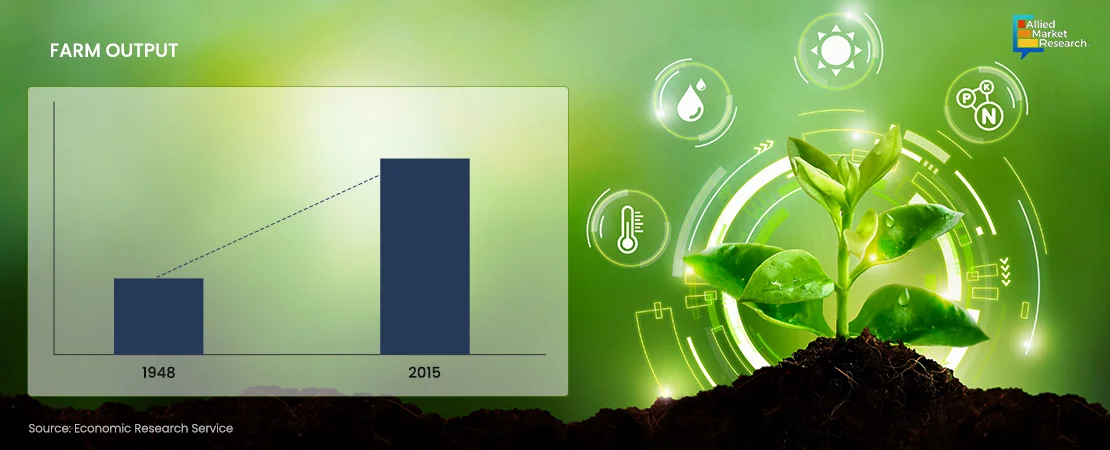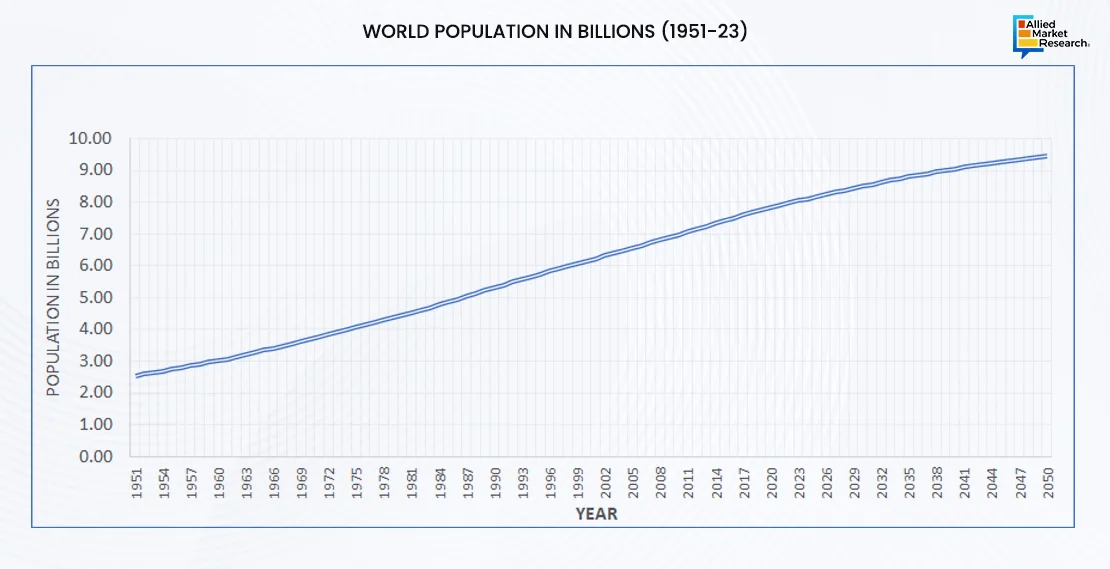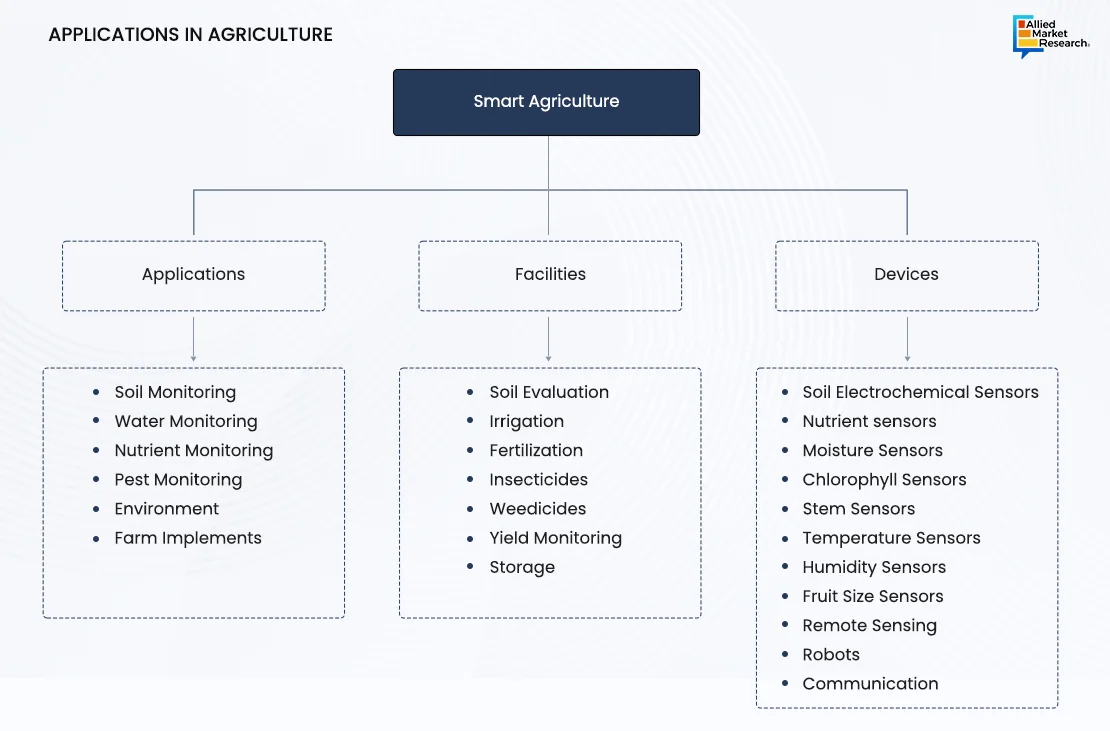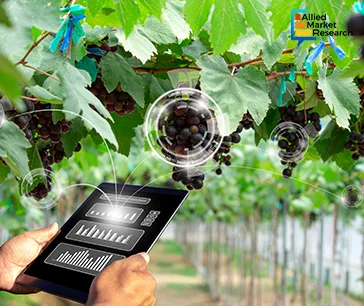IoT's Influence on Agriculture: Innovation through Smart Farming

Smart Farming and Agriculture Today
In the United States, there are currently around 2.06 million operational farms, a stark difference from the 1.8 million farms 80 years ago. The latest data from the Economic Research Service (ERS) indicates that U.S. farm output experienced a remarkable growth of 170 percent from 1948 to 2015. This growth occurred at an average annual rate of 1.48 percent, largely attributed to technological advancements that have propelled significant changes in agriculture.
In today's world, where Low Power Wide Area Networks (LPWAN) like LoRaWAN are commonly used and nationwide 5G networks are rolling out, the Internet of Things (IoT) is revolutionizing industries beyond the technology sector. IoT technology is having a significant impact on various sectors, including agriculture, by providing predictive and real-time access to vital insights. This impact is particularly evident in the emergence of "Smart Farming," where IoT technology offers intelligent support in implementing, maintaining, and utilizing agricultural practices. Additionally, IoT is driving the growth of "Precision Agriculture," which encompasses techniques aimed at enhancing precision and control in crop cultivation and livestock management.

Increasing demand for food production due to population growth
The escalating global population puts unprecedented pressure on the agricultural sector to enhance food production. Projected with an estimated 9.7 billion people by 2050, there is a critical need for innovative solutions to meet burgeoning food demands sustainably.
IoT technology has become a key solution for the challenges faced in agriculture. By leveraging IoT sensors to gather real-time data on soil conditions, crop health, and environmental factors, farmers can optimize resource usage and boost productivity. This data-driven approach enables more efficient irrigation, fertilization, and pest control strategies, ultimately increasing crop yields. Therefore, integrating IoT into agriculture is essential for addressing present food demands and safeguarding future food security with the growing population.

Applications in Agriculture
In the digital age, agriculture is undergoing a profound transformation, attributed to the widespread adoption of IoT technology. From family farms to agribusiness giants, IoT is revolutionizing crop cultivation, livestock management, and resource optimization.
Precision Farming: John Deere's Operations Center integrates IoT sensors with AI algorithms to provide farmers with real-time insights into soil moisture, nutrient levels, and crop health. This allows farmers to optimize planting schedules, reduce input costs, and maximize yields.

Livestock Monitoring: Smart ear tags equipped with IoT sensors allow farmers to monitor the health and behavior of individual animals in real time. Companies like Allflex and HerdDogg provide solutions that track factors like temperature, activity levels, and location, enabling early detection of illness and optimizing breeding programs.
Supply Chain Management: IBM's Food Trust platform utilizes IoT technology to create a transparent and traceable supply chain for agricultural products. By tracking items from farm to fork, stakeholders can ensure food safety, minimize waste, and respond swiftly to issues such as contamination or spoilage.
Crop Monitoring and Management: Bayer's Climate FieldView platform leverages IoT sensors, drones, and satellite imagery to provide farmers with detailed insights into crop health and performance. By analyzing data on factors like moisture levels, pest infestations, and yield potential, farmers can make informed decisions to optimize their operations.
Smart Irrigation Systems: Netafim's Precision Irrigation solutions use IoT technology to deliver water precisely where and when it is needed. By monitoring soil moisture levels and weather forecasts in real time, these systems optimize irrigation schedules, conserve water, and enhance crop quality and yield.
Environmental Monitoring: Arable Labs' Mark IoT sensor collects data on environmental factors such as temperature, humidity, and solar radiation. This information helps farmers optimize growing conditions, improve resource efficiency, and mitigate risks associated with climate variability.
The agricultural landscape is undergoing a profound transformation, providing farmers with unparalleled insights, management capabilities, and operational streamlining. With innovative solutions from key players like John Deere, Bayer, IBM, and others, the future of farming is bright, sustainable, and connected. IoT is expected to maintain its pivotal role, shaping the agriculture industry for future generations.
Role of Big Data & AI in Agriculture
Big Data refers to vast volumes of data from various sources. It is used for informed decision-making, predictive insights into farming operations, and innovative business models. Precision Agriculture uses big data from aerial and satellite remote sensing to assess field conditions, manage nutrients in real time, and provide insights into soil characteristics. This empowers farmers to optimize their operations intelligently by determining precise amounts of fertilizer and pesticide for specific areas. For example, the agricultural machinery giant has been at the forefront of integrating IoT and AI into its equipment and services. John Deere's Operations Center platform collects data from its machinery, including tractors and combines, as well as from third-party sources like weather stations and satellites. This data is then analyzed using AI algorithms to provide farmers with insights and recommendations for optimizing their operations, such as planting, harvesting, and field management.

Moreover, as a leading agricultural biotechnology company, Bayer has been investing in digital farming solutions that incorporate big data and AI. Bayer's Climate Field View platform collects data from IoT sensors, drones, and satellites to provide farmers with field-level insights and decision support tools. Through AI-driven analytics, farmers can monitor crop health, predict yields, and optimize inputs for improved productivity and sustainability.
Technological advancements
The impact of IoT technology on agriculture has been significant, bringing in a new era of data-driven farming practices. By placing IoT sensors throughout farms, real-time data on soil moisture, temperature, and crop health can be collected, allowing farmers to make informed decisions that optimize yields and resource usage. For example, smart irrigation systems use IoT sensors to precisely monitor soil moisture levels, reducing water waste by up to 30%. Additionally, drones equipped with multispectral cameras and IoT sensors provide high-resolution images of fields, enabling farmers to detect crop diseases and nutrient deficiencies early on. This can potentially increase yields by 25% or more. These technologies not only boost productivity but also contribute to sustainability efforts by minimizing the use of water, fertilizers, and pesticides.
Industry Players and Innovations
In recent years, several new players have entered the IoT in the agriculture industry with innovative solutions. Startups like Arable Labs and Farmers Edge have leveraged advanced sensors, AI, and data analytics to offer precise crop monitoring and management tools. Despite this influx of newcomers, key players like John Deere, Trimble Navigation, and Climate Corporation maintain dominance through established industry presence, extensive R&D, and comprehensive product offerings. These industry leaders often integrate IoT seamlessly into their existing agricultural machinery and software ecosystems, providing farmers with end-to-end solutions for precision farming. Additionally, strategic partnerships and acquisitions further solidify their industry positions, reinforcing customer trust and driving continued growth and innovation.
Case Study
IoT Applications in Agriculture with Inspirisys
Background: Inspirisys is a prominent information technology services and consulting firm based in India, with a strong global presence across North America, the Middle East, the UK, Japan, and Singapore markets.
Challenge: One of Inspirisys' clients wanted to use smart farming to enhance efficiency in their irrigation system and anticipate technological advancements in agriculture.
Solution: Inspirisys presented a smart farming solution to address the client's business challenges. The solution is based on IoT architecture and provides essential alerts for plants, real-time monitoring of soil health and environmental conditions, tracking of fertilizer usage per square foot, and drone-assisted yield forecasting. Furthermore, Inspirisys installed a smoke/fire detector for safety and contingency purposes. The integrated data from all IoT sensors generates a consolidated view of plant health with a health index.
Result: Inspirisys provided a complete smart farming solution to their client, along with continuous professional assistance. The data analytics they conducted offered valuable insights into the client's investments, yield estimation, and actual yield. By integrating machine learning into the IoT model, the estimation of plant growth patterns became possible, and an automated irrigation system was enabled. As a result, the client received substantial benefits from a comprehensive solution that optimized their farming operations.
The End Note
IoT technology revolutionizes the agricultural industry by providing farmers with real-time data on soil moisture, temperature, and crop health. By leveraging IoT, farmers can make informed decisions regarding resource allocation, resulting in improved crop yields. Moreover, the rise of smart farming solutions utilizing IoT technology allows for remote monitoring and control of agricultural operations, reducing manual labor and operational costs while enhancing decision-making capabilities.
Allied Market Research (AMR) serves as a trusted partner for vendors in the agricultural sector, offering comprehensive insights and tailored strategies to effectively integrate IoT practices into their businesses. With AMR's expertise and support, they can gain the knowledge and tools needed to identify opportunities, assess market demand, and drive innovation in their operations. By leveraging AMR's resources, vendors can also confidently embrace IoT technologies, optimize efficiency, and capitalize on emerging trends to achieve sustainable growth and success in the dynamic agricultural landscape. For more details on how IoT can help agriculture businesses reach the desired height, contact our specialists today!



